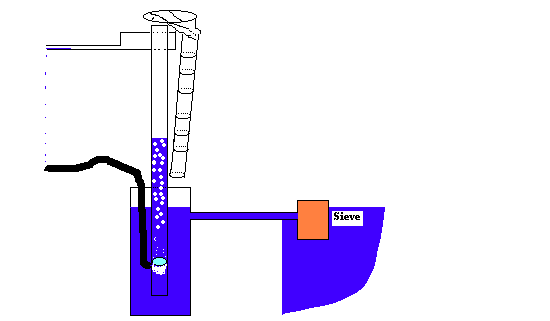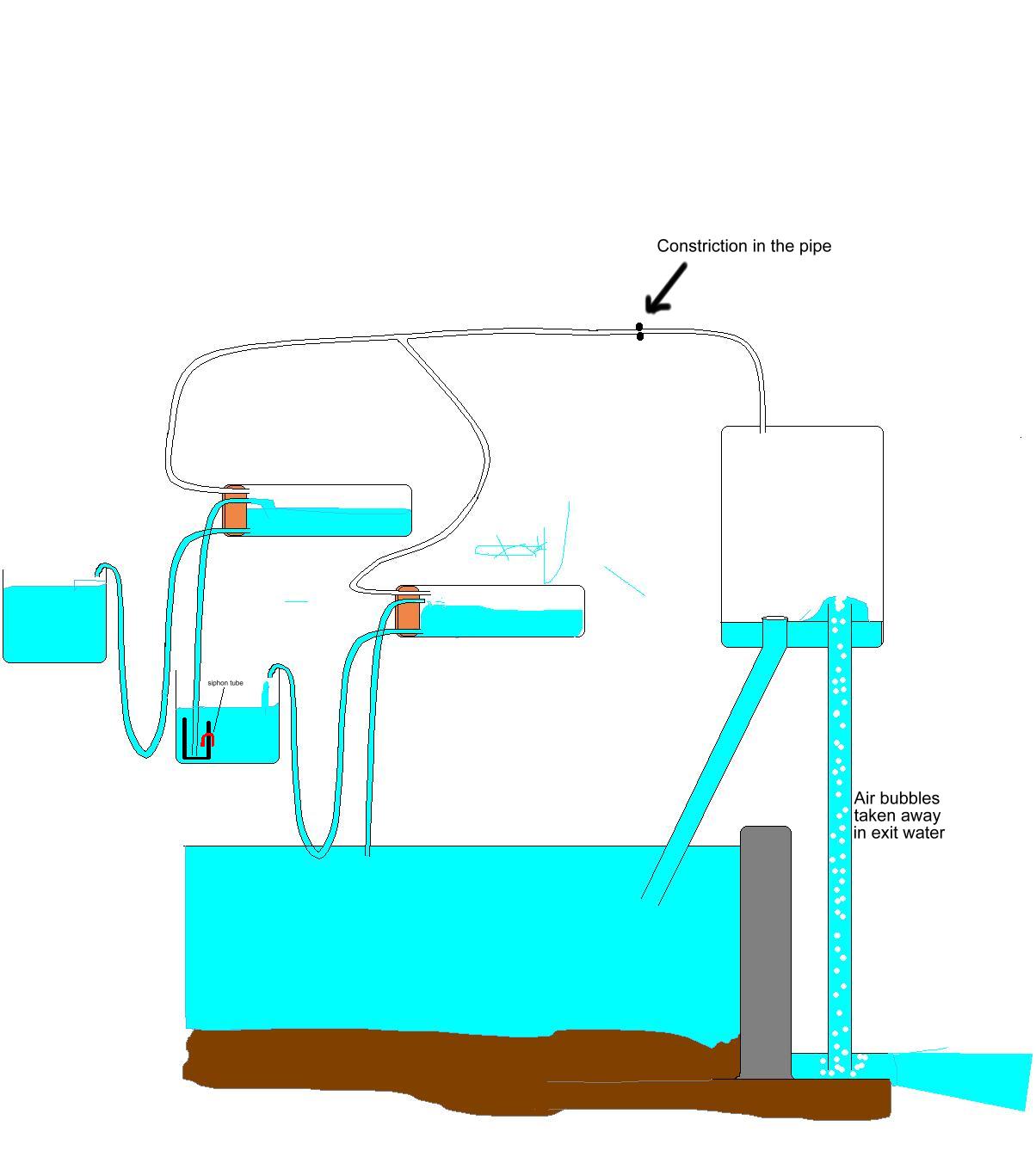Email
Page Contents
Home
page
Pulser
index page
Improve the pulser
pump!
(or any air lift pump)
The pulser pump is a general purpose pump for
pumping water or air short distances. It isn't very efficient but (Hopefully!)
it makes up for it in other ways. Here is a way of dramatically improving
the performance for pumping water and (perhaps) of reducing the depth needed
to do pumping. This would probably work best with a split process pump.
The improvement may be achieved simply by using
balls of sponge like material (of a diameter suitable to fit the
pipe) and circulating them in the system. They act like pistons and reduce
the fallback. In this way, the efficiency is improved.
This has the potential to double the efficiency
of the pump as it pumps water!
I have done some experiments
but I haven't the time to complete them so it is over to you waterpower
hands-on scientist types! GOOD
LUCK

Some Guidelines.
1 The sponge should be
light and when it soaks water, it should sink.
2 I think that it should
be made of relatively hard material.
3 You may need some spacing
or timing mechanism to keep the balls the required distance apart.
4 Use hard clear pipes so you
can see what is going on inside. Perhaps Plexiglas or perxpex.
5 Perhaps you can power your
experiment with a small air pump. (Only the air lift part of a pulser
pump
is being changed).
6 Perhaps (if you are using
a pulser pump to power your experiment), you can have the air inlet to
the air lift section
about 70% or 80% of the maximum that it could be. You might not understand
why until you
try it out!
So there they
are, I hope some of you try the thing and make it better!
7 The pump should also work
without the sponge balls.
The animated picture lacks detail (only one sponge ball is shown),
scale, fall-back etc. but it should
give you an idea what I mean. Air to power the process comes in through
the
black pipe on the left. Improved image! 6th September
Pulser
pump model
Please use this link to build a simpler pulser modelmodel instructions
use this link to make a split process model (More complicated)
Suction
pump model
Below you will find a diagram of a suction pumping system which you can
make from jam jars, rubber bungs and rubber tubing! It need have no moving
parts. Instead of providing air under pressure as the pulser pump
does, it produces vacuum. It is very much a toy but one which will give
a lot of enjoyment as you try to tweak the process for better performance.
I now include an animation of the suction pump at Suction pump index
There are hundreds of ways to make it better!
You can use a valve instead of a constriction, you can have 2 sets
of pumping chambers, find the optimum height for pumping stages, or adapt
the process to pump in one long stage like a pulser pump.
It works scaled up too. I am not sure how tall you can make the suction
maker (pipe walls will collapse due to the vacuum). I do not think that
such a pump is good for the environment because a fish passing through
it would suffer swim bladder damage, aquatic insects would have their breathing
tubes damaged and I do not think that it will change the oxygen levels
in the stream in a beneficial way. This jam jar suction pump was actually
my first pump. I thought it up while distilling hexane in a laboratory
(boring job watching liquid bubble through pipes) and it is based on the
Krebs cycle which we learn about in biochemistry. The pulser pump
evolved from my experiments with it.

Email
Page Contents
Home
page
Pulser
index page
